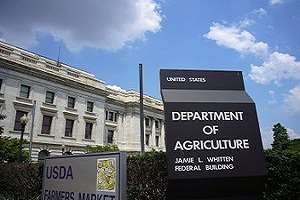By Colin Woodall
Taking advantage of some mixed signals from Congress, the USDA has decided to move forward with implementing the GIPSA rules which have been on ice since 2010, slipping them in during these last few weeks of the Obama administration. Farm Director Ron Hays spoke with Colin Woodall of the National Cattlemen’s Beef Association who says the fact that they are resurrecting these rules for implementation, is a big worry.

“We are concerned because these provisions are very similar to what we saw with the 2010 proposal that we worked so hard to try to defeat and defund,” Woodall said. “The fact that these are back concern us and really we’re talking about the definition of competitive injury and undue or unfair preference.”
In laymen’s terms, Woodall says that just means the USDA is going to define what is fair in the cattle marketplace. Doing this he says would threaten the industry’s alternative marketing arrangements and value added programs.
“We definitely don’t think they should be defining what is fair in the marketplace,” Woodall said. “It’s going to cause trial lawyers to take that definition and run with it. There could be any opportunity in the world to come out and sue other producers, feeders and packers.”
Click here to see more...